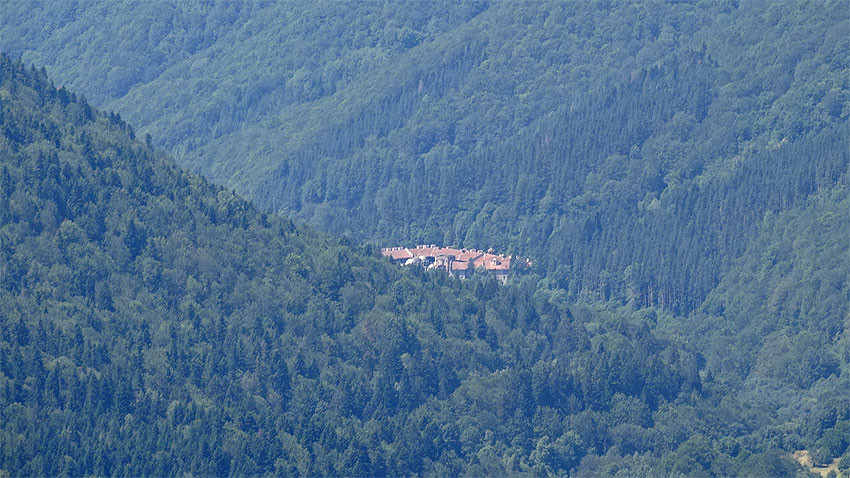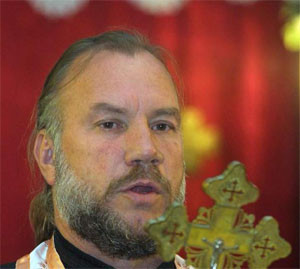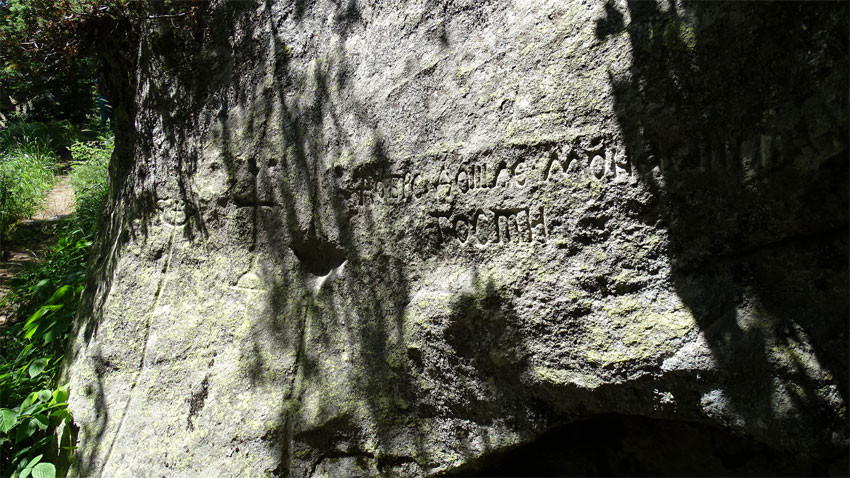On October 19, Orthodox Bulgaria honors the memory of its heavenly protector, St. Ivan Rilski. The name of the most famous monastery in this country, which is also a monument of UNESCO and has preserved the faith and spirituality of the Bulgarian people throughout the centuries, bears his name.
Its first abbot was St. Ivan Rilski, who lived for many years in seclusion in the depths of the highest Bulgarian mountain - Rila. The people and Church call him a miracle worker because of the many testimonies of miraculous healings.

 “What we know about him is not enough,” Priest Boyan Saraev says. "The times in which he lived are quite distant, as this is the end of the 9th and early 10th century. These were difficult times for the people and state. Corruption among the highest political circles was great; there were sects. And the activities of flesh and decay were universally spread. It is in such complex and difficult times that God sent St. Ivan Rilski to teach us the truths of the Holy Gospel.”
“What we know about him is not enough,” Priest Boyan Saraev says. "The times in which he lived are quite distant, as this is the end of the 9th and early 10th century. These were difficult times for the people and state. Corruption among the highest political circles was great; there were sects. And the activities of flesh and decay were universally spread. It is in such complex and difficult times that God sent St. Ivan Rilski to teach us the truths of the Holy Gospel.”
Ivan Rilski denied the pursuit of wealth and pointed out greed and envy as the greatest vices that detract from spirituality. After accepting monasticism, his desire to dedicate his life to the service of God took him to Rila Mountain. Far away from the vanity of the world, he devoted himself to prayers, and when Tsar Peter himself went to him with gifts including fruit and gold, the hermit did not let him close to himself, but only bowed to the Tsar from afar. The king sent the generous gifts, but the holy old man accepted only fruit. In a letter, he thanked the king for his generosity, turned down his invitation for a meeting and sent his advice to him. Among them is the wise covenant for all those who seek to rule the country: "He who wants to be first among all, must be a servant to all."
St. Ivan Rilski’s humility was an example to many and in spite of the solitary life he led, he became famous among Orthodox and other believers as the link of God to all in need. People constantly sought his support and wise guidance. Known for his purity and good-heartedness, people started calling him an earthly angel and a heavenly resident when he was still alive. After his death in 946 he was buried close to the monastery he established.
Having learned of the death of the hermit, Tsar Peter ordered his relics to be transferred to the town of Sredets, present-day Sofia. When the grave was opened, the saint’s disciples saw an incorruptible body and smelled pleasant aroma. They carried the relics on October 19th and from that day on, each year, the Bulgarian church solemnly commemorates the saint.

After Byzantine scholar Georgi Skilitsa was healed, thanks to the saint’s heavenly help, he wrote the story of Ivan Rilski’s life, as well as eight canons of scripture dedicated to him. During the Ottoman domination, in 1469, monks from the Rila Monastery sought permission from Sultan Murad II and returned the relics to the Rila Monastery. To this day, they are helping all those who come with faith:
“God sometimes works miracles in front of non-believers in order to open their spiritual eyes," Priest Sarev says. "In order for people to see that one or another saint has a great power of healing and working miracles, so that those who have not yet believed could believe. The miracles he does did not stop when he was alive and haven’t stopped after his death.”
One of the great miracles of the saint was during the Balkan War in the late autumn of 1912. On the way to the Ottoman capital of Istanbul, near Çatalca, he appeared during the fierce battle with the Arab cavalry to inspire the courage of Bulgarian soldiers. In the book "The Miracles of St. Ivan Rilski and the Miraculous Icon of the Holy Mother of God ‘Osenovitsa’ in Rila Monastery” Archimandrite Kliment Rilets carefully and in detail describes the stories of all those who received help from the Rila miracle worker.
English: Alexander Markov
Photos: archiveToday, 6 November, marks 104 years since the annexation of the Western Outlands in 1920. Traditionally Bulgarian territories in south-eastern Serbia and northern Macedonia were ceded to the Kingdom of Serbs, Croats and Slovenes in 1920 as a result of..
Volunteers joined the efforts to clean and restore the monastery St. Spas near Bakadzhik peak. The campaign is being organized on 2 November by Stoimen Petrov, mayor of the nearby village of Chargan, the Bulgarian news agency BTA reports. The..
There are three special days on the calendar of the Bulgarian Orthodox church, on which believers pray to God and give alms to honour the memory of their dear departed. The three All Souls’ Days always fall on the Saturdays before Meat..
105 years ago, on November 27, 1919, a treaty was signed in the Parisian suburb of Neuilly-sur-Seine, officially ending Bulgaria's..
The head of the statue of Tyche, the goddess of Philippopolis, has been discovered in the Episcopal Basilica in Plovdiv, said the head of the..

+359 2 9336 661
